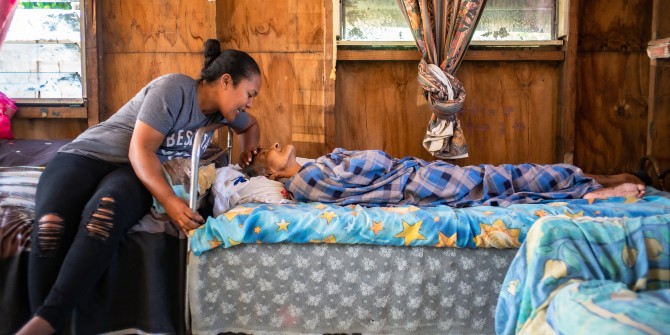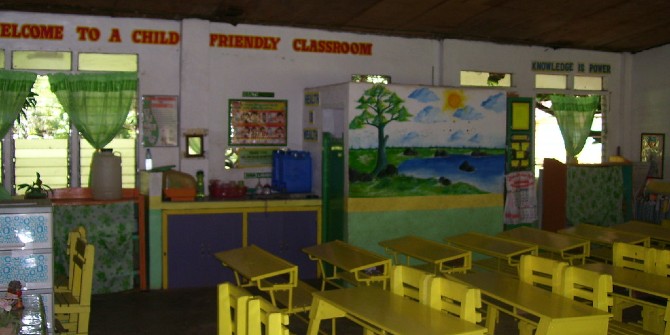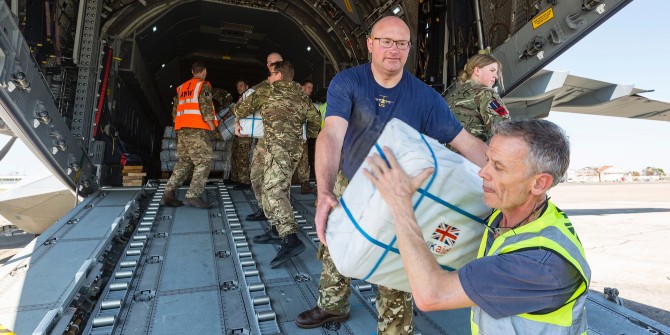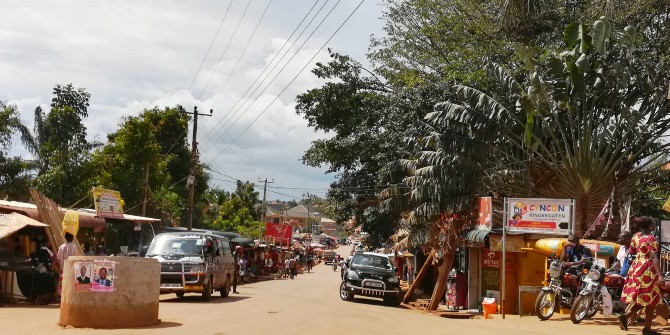The Pacific Islands have so far been spared many COVID-19 infections, but the impact on tourism has been unprecedented. Emily Moli (UNDP) says that although they are struggling to support their people as wealthier neighbours can, the disaster provides the chance for a radical rethink and the opportunity to build on a rich seam of social solidarity.
Although the number of COVID-19 infections in Pacific Island Countries (PICs) is low because of their relative isolation, they have not escaped the consequences of the economic freefall resulting from the lockdowns. The sudden demise of tourism, a major money earner for many island states; the loss of jobs and income; a decline in remittances; and the dramatic shrinking of investment and economic opportunities have left families devastated and governments’ resources stretched to the limit.

In many ways, the pandemic merely exacerbates the existing economic challenges and further deepens the poverty and vulnerability that many Pacific peoples had already been experiencing. It exposes, in more blatant ways, pre-existing social, economic and gender inequities. Those in vulnerable employment (such as the hospitality industry, infrastructure, construction and manufacturing) and those in the informal sector are among the first victims of the economic squeeze. The aid, debt and remittance-based Pacific economies are struggling to respond effectively, as many do not have the means to provide wage subsidy and stimulus packages like those implemented by their neighbours in Australia and New Zealand. This means innovative strategies and development models are needed.
One of the unique characteristics of Pacific communities is the dynamic inter-relationship between traditional subsistence production and the market system. The subsistence sector in the Pacific provides significant subsidy for cash income, as well as a socio-economic cushion in times of crisis, as we saw during the 2018 financial crisis. When crises occur, there is a collective intuition to revert to community-embedded values and strategies. Examples include the resurrection of the age-old reciprocity system, which is now being enthusiastically embraced in Fiji (Barter for Better Fiji) to counter the cash shortfall; the rush to promote backyard subsistence farming; and the re-engineering of indigenous social protection systems of support. They show that the basis of resilience is already present in local cultural and innovation systems. How do we incorporate it into the formal policy process?
Perhaps it is time for a dialogue between the indigenous systems of production and the formal sector to frame an innovative, equitable, resilient and sustainable system. The Sustainable Development Goals (SDGs) offer pathways for equity, resilience, empowerment, diversity, people-centered development and progressive transformation. One strategy would look at how to use local resources and knowledge better. For instance, indigenous knowledge of medicinal plants and resources constitutes a major portion of the pharmaceutical industry, but very little benefits trickle down to the owners of the resource. The UN-affiliated World Intellectual Property Organization (WIPO) has been at the forefront of protecting these indigenous resources and knowledge from biopiracy.
As the remittance tap slows to a trickle, tourism and the travel industry collapses, thousands lose their jobs (as we saw with Fiji Airways) and as poverty and inequality increase, we need to strengthen the social and solidarity economy. The pandemic has also highlighted the need for PICs to strengthen their social protection strategies, seriously address inequity and cut down on their national debts and expenditure to respond more effectively to major disasters.
A new UNDP report calls on countries in the region to avoid returning to unsustainable pre-pandemic development paths and to take advantage of the opportunity to pursue innovative alternatives. From the Pacific Island countries’ point of view, the pandemic has strengthened the SDGs’ moral authority – and the challenge is how countries can ensure no one is left behind. In the words of UNDP administrator Achim Steiner, “We must act in borderless solidarity to defeat it.”
This post represents the views of the author and not those of UNDP, the COVID-19 blog nor the LSE. It first appeared in a longer form on the UNDP website.




